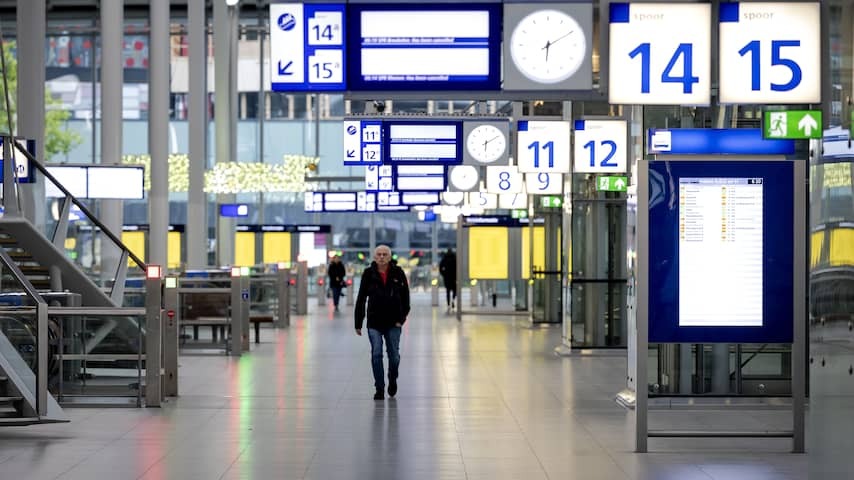
Travelers are experiencing disruptions today due to the nationwide strike by NS (Dutch Railways) personnel. NU.nl readers are wondering: couldn’t the staff simply stop checking tickets for a day? The idea is that this would primarily affect the NS and not the traveler.
According to some readers, it’s simple: if NS personnel would just leave the gates at the stations open for a day, people could travel by train without problems. The NS would be hit by missed revenue, but travelers would be spared. Or, readers suggest, don’t check tickets for a day.
But are employees allowed to do that? That’s legally a bit complicated.
Right to Strike in the Netherlands: How it Works
There is no strike law in the Netherlands. However, the European Social Charter is in effect. It states that as an employee, you are allowed to strike if employers and unions cannot agree on the content of a collective labor agreement (cao), according to the FNV union.
Striking is therefore a European fundamental right. Your employer cannot dismiss you or punish you in any other way for it. However, he or she may choose not to pay your salary for the hours you strike. If you are a member of a union, you can receive a strike benefit.
There are also some snags with the content of the strike. The court can prohibit a strike if it is socially necessary. This is the case, for example, if public order or public health is endangered, although that is a gray area.
An employer may not, for example, suffer disproportionate economic damage from a strike. For example, Schiphol Airport must remain accessible during the public transport strike, the court ruled last year. Therefore, some NS trains still run between the airport and Amsterdam Central Station.
Not checking tickets for a day is also not allowed just like that, says a spokesperson for FNV to NU.nl. The costs of such an action are too high in proportion to the reason for striking. “In the past, NS personnel have been emphatically warned by the NS and the court that that is not legally allowed,” he explains. Letting people travel for free is “in short, a great idea, but it is simply not allowed by the court.”
Opening Gates Is Not Possible Just Like That
Evert Verhulp, Professor of Labor Law at the University of Amsterdam, thinks that is a bit simplistic. He refers to earlier strikes in, for example, bus transport, where drivers also stopped checking tickets. So it is possible.
But at train stations, you would then have to open the gates. And NS employees cannot just do that: they need permission from the NS management for that, says Verhulp. “That is an assessment that the NS can make itself. But I think the strikes will then also be a little less effective.”
Pascal Besselink, Labor Law lawyer at DAS, points out that the NS can withhold wages from employees who, for example, stop checking tickets. “But it is difficult to check who participates in this more public-friendly action and who does not,” he says. “For the NS, it is therefore difficult to determine who gets no or less pay. And for the unions, it is also more difficult to determine who they do and do not pay from the strike fund.”
In short: such a public-friendly strike becomes very unclear. The nationwide NS strike is clearer and more transparent for both employers and employees.
NS employees are therefore bound by certain restrictions when it comes to striking. Yet there is a way for travelers to somewhat compensate for the inconvenience caused by strikes. In the event of national strikes, the strike scheme applies. If you cannot travel that day due to the strike, you can, under certain conditions, receive compensation from the NS or a contribution of 25 euros towards the costs of alternative transport.
And the unions are doing what they can to relieve the traveler, emphasizes the FNV spokesperson. “That is why we announce the strikes well in advance.” Then travelers have the opportunity to arrange alternative transport, such as a bus trip or renting a car. Or work from home after all, if that is possible.